Quick wins
Living in a temporary home: the number of households in England in temporary accommodation reached 78,180 at the end of June this year, according to DCLG statistics. This was a 7% increase on a year earlier and up 63% on 2010 figures.
Cybercrime hits councils: just over three quarters (76%) of councils were affected by cybercrime in the past year, according to an industry survey. Responses suggested they had experienced a malware, virus or Trojan attack, while 50% had been victims of ransomware attempts.
Degree fee debt: graduates who entered university after 2012 owe £34bn in fees. The Institute for Fiscal Studies said writing off this outstanding debt would have no immediate effect in the short term but would increase debt by £20bn by 2050.
Tax us, spend more
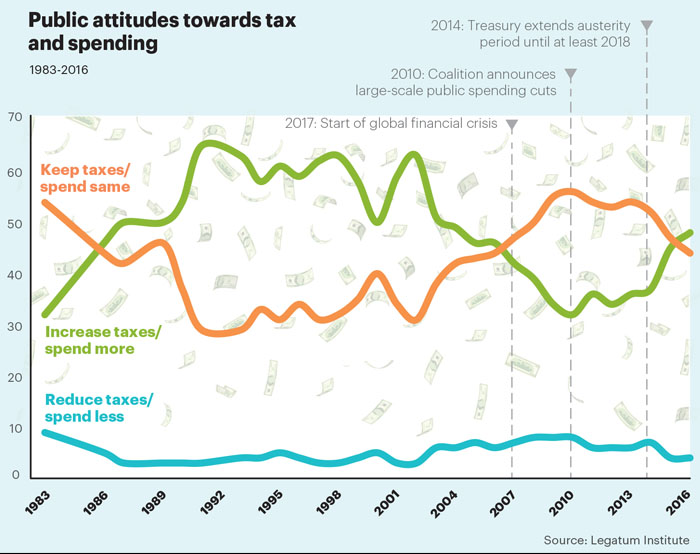
For the first time in a decade, more people want tax and spending to be increased rather than stay the same, according to British Social Attitudes survey figures cited by the Legatum Institute in a report on public attitudes to capitalism and free markets. From just before the 2007 financial crash until 2016, there had been more support for keeping tax and spending levels as they were. The report authors suggest the “Overton window” – which covers the range of ideas the public will accept – has shifted, with greater support for nationalisation and state control and declining trust in free markets.
Support for NHS still sustained
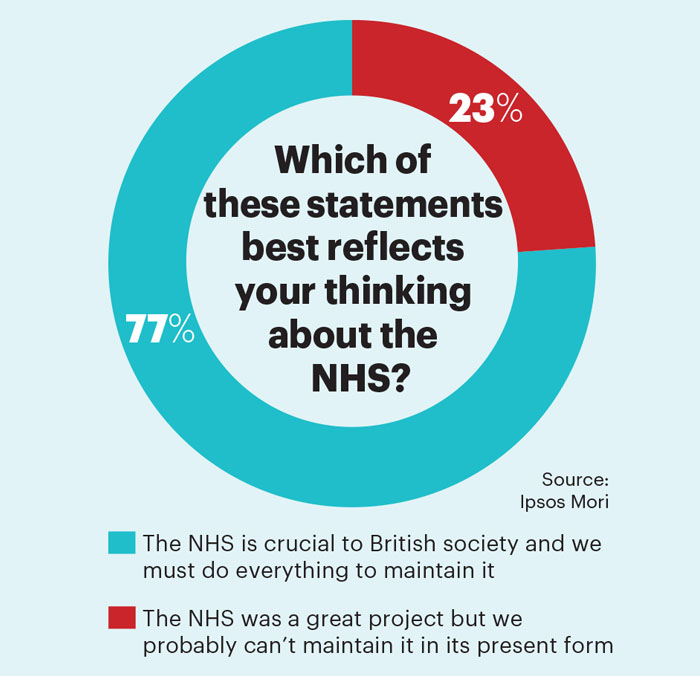
Support for the idea of the NHS remains buoyant, polling by Ipsos Mori for the King’s Fund has found. More than three quarters of people (77%) agreed that the NHS was crucial to British society and must be maintained, compared to 23% who believed it was a good project but cannot be sustained in its current form. Support for the NHS has remained remarkably consistent since the millennium, the pollsters observed, with an average 76% of people backing its principles.
Petrol drives prices
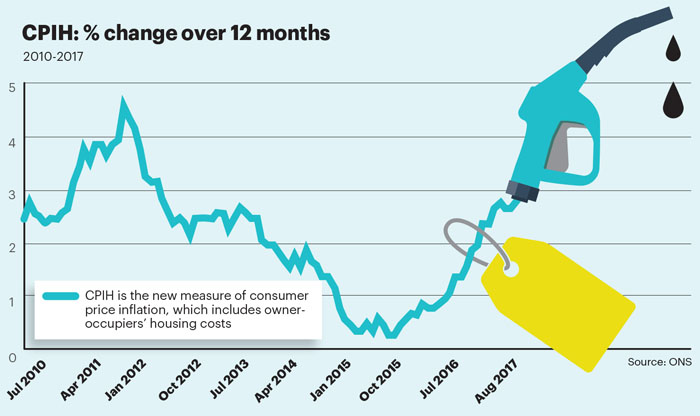
Core consumer price inflation hit 2.7% in August, continuing a recent upward trend, the Office for National Statistics said. Rising prices for clothes and motor fuel were the main drivers of the increase.
The depreciation of sterling following the Brexit vote could also be a factor, the ONS said, although it added that rising global commodity prices could have influenced the inflation rise.
Subsequent ONS figures showed inflation hit 3% in September. This was the highest level for five years.
The politics of office
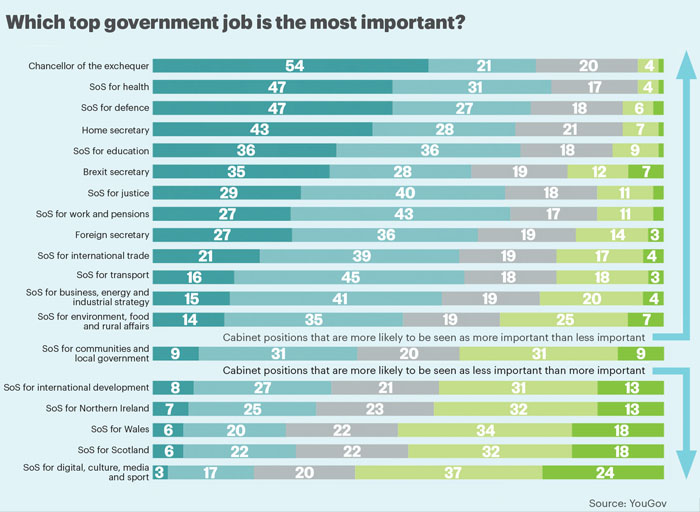
There is something of a disconnect between what the public regard as the “great offices of state” and what they were traditionally seen to be – the chancellor of the exchequer, foreign secretary, home secretary and prime minister – according to a YouGov poll. Members of the public are more likely to regard the roles of health secretary and defence secretary as more important than the foreign secretary position. The job of chancellor is still seen as one of the most important positions in government by 75% of people.
Better or worse
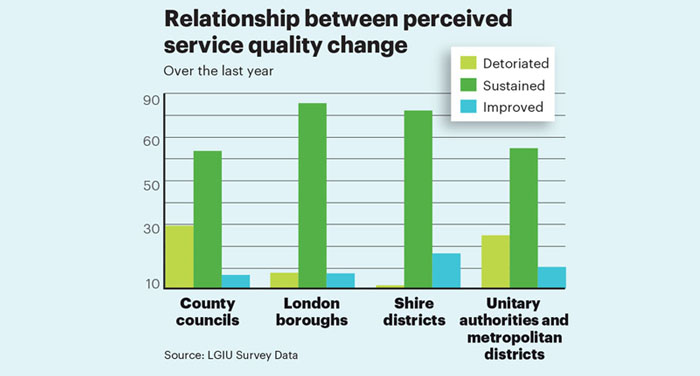
Elected members and senior officers in all councils generally believe service quality largely held up in 2016-17, according to polling cited by the Institute for Fiscal Studies. Council staff were more pessimistic in counties and unitary and metropolitan districts, which both have social care responsibilities. Around one in four of those surveyed said services had deteriorated. In shire districts, around 15% of respondents said services had improved.
Bank of mum and dad
Almost eight out of 10 parents believe the costs of sending their child to state school is increasing, according to research from PTA UK.
Among the areas where costs for parents were rising were school trips, uniforms, school meals and technology such as tablets and laptops.
Forty two per cent of parents said they had been asked to donate to the school fund, up from 37% last year. Parents donated, on average, £8.90 monthly to the school fund, with Londoners being more generous than those living in other regions.
Michelle Doyle Wildman, acting chief executive of PTA UK, said: “Parents are reporting that they are contributing more to provide the essentials that many expect to be provided by the state.
“If this is a growing trend, it’s crucial that schools work in partnership with parents to address their specific concerns, taking their views into account when prioritising difficult funding decisions, and exploring realistic alternatives with them, not in isolation.”



















